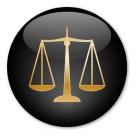Mirpur Law and Consultancy Firm

Mirpur Law and Consultancy Firm
Services
TIN & Income Tax ,
Value Added Tax (VAT) ,
Trade License ,
Procedure of IRC & ERC ,
New NGO Registration ,
Company Formation ,
Marriage/Divorce,
Notary/Affidavit
BSTI Certificate
BOI Certificate



Mo |
Di |
Mi |
Do |
Fr |
Sa |
So |
1 | ||||||
2 | 3 | 4 | 5 | 6 | 7 | 8 |
9 | 10 | 11 | 12 | 13 | 14 | 15 |
16 | 17 | 18 | 19 | 20 | 21 | 22 |
23 | 24 | 25 | 26 | 27 | 28 |
Muhammad Murad Uddin
(M.Com-Accounting, PGD-HRM, LLB, ITP)
Advocate and Tax Adviser
Phone: 01967113128, 01723946969
Email: muradserge@gmail.com, mlcfbd5@gmail.com


Law Information
 mlcf
mlcfWelcome to the Information System of the Laws of Bangladesh.Law is a system of rules that are enforced through social institutions to govern behaviour. Laws can be made by legislatures through legislation (resulting in statutes), the executive through decrees and regulations, or judges through binding precedent (normally in common law jurisdictions). Private individuals can create legally binding contracts, including (in some jurisdictions) arbitration agreements that may elect to accept alternative arbitration to the normal court process. The formation of laws themselves may be influenced by a constitution (written or unwritten) and the rights encoded therein. The law shapes politics, economics, and society in various ways and serves as a mediator of relations between people.
Legal systems
In general, legal systems can be split between civil law and criminal law systems. The term "civil law" referring to a legal system should not be confused with "civil law" as a group of legal subjects distinct from criminal or public law. A third type of legal system—accepted by some countries without separation of church and state—is religious law, based on scriptures. The specific system that a country is ruled by is often determined by its history, connections with other countries, or its adherence to international standards. The sources that jurisdictions adopt as authoritatively binding are the defining features of any legal system. Yet classification is a matter of form rather than substance, since similar rules often prevail.








